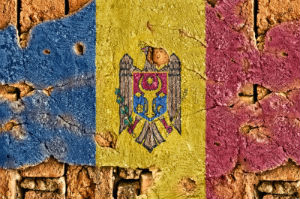 |
Moldovan flag, domdeen, freedigitalphotos.net
|
For most of us in the UK, human trafficking is far removed from our everyday lives. We might hear about it from time to time on the news. Occasionally, we hear reports of young girls being rescued from night clubs run by gangsters, or of a trafficking ring being broken up by police. In the main, however, human trafficking is far removed from our experience, the stuff of films like
Taken. But here in Moldova, where the EBF’s anti-trafficking group met recently, it is all very real indeed.
I went to a remote village near the border with Romania. I met a girl whom I will call Lydia. She lives in a very poor house with her tiny daughter.
Lydia is weak and thin, and probably does not have long to live. The only heating in her house is a wood fire, and she does not have the strength to chop and gather the wood. Her sister comes to help her sometimes, but she has to do that secretly because Lydia’s brother-in-law wants to have nothing to do with her. The villagers have shunned her because they have discovered that she has HIV.
We sat with Lydia for some time. As she talked and cried, she expressed her fears for her young daughter. What would happen to her when Lydia dies? Who will care for her? Like all mothers Lydia wants her daughter to have a good education and be able to get a good job. She is afraid that what has happened to her will happen to her little daughter too.
What had happened to Lydia? She had been trafficked into the sex industry, forced to work as a prostitute in Italy and Germany, and even further afield in Asia. After some years, she finally made it back to Moldova, and came to the House of Change in Chisinau, the capital city. When she first arrived she was very strong physically, full of energy, and angry. She fought with everyone in the house. After a while, she seemed to settle down a bit.
But then she left, saying she wanted to be independent. Unfortunately, all she knows is prostitution. Lydia ended up pregnant and HIV positive. It is likely that Lydia’s daughter will become an orphan soon. When that happens she will become the responsibility of the State. Her mother is terrified that she will have to go into a children’s home, for there she will be at risk of exploitation by human traffickers.
In Moldova, this is a real threat for many children. Orphanages are prime targets. But orphans are not the only children at risk. Unemployment is 80 per cent in the rural areas. Out of a population of 3.5 million, about 1.5 million people have left to work abroad. So parents go abroad and send money back home. Their children therefore have money, but no parents. They may live with their grandparents, on their own, or with abusive and alcoholic relatives, and are very vulnerable indeed. Many young girls are sold into the sex industry and many boys trafficked into forced labour in the construction industry in Russia and elsewhere.
Pastor Vladimir Ubeivolc and his wife Julia are working tirelessly to help those caught up in this situation. Their organisation, Beginning of Life, works against human trafficking from several different angles. They run the safe house in which Lydia lived for a while. She is one of 66 women who have lived there since it opened in 2009. There women can learn how to care for themselves, and are encouraged to gain an education or learn a skill in order to be able to live lives apart from prostitution. Staff keep in touch with women who have left the centre and are trying to live ordinary lives, visiting regularly and making sure they have what they need to live independently.
But Beginning of Life is not only concerned with rehabilitation and rescue. They also want to prevent vulnerable young people from exploitation.
In the "Urban Centre", some 400 teenagers who are at risk attend after-school clubs in which they are taught the life skills and values which most of us learn from our parents. The magazine
Escape is distributed in schools to help children recognise the dangers of human trafficking and teach an alternative lifestyle to consumerism and materialism.
In the "Dream House" which opened last year, 10 young girls, who are aged from 12 to 16 and come under the category of “social orphan” are given a loving, safe home in which they can develop their natural gifts and work towards the educational qualifications which are essential for finding a job in Moldova. At the Psychological Art Studio, young people receive counselling, and learn craftwork and develop artistic skills, both as a therapeutic exercise and as a means of earning a living.
Human trafficking is a harsh reality in this part of the world. It is no fiction, no figment of Hollywood’s imagination. Children and young people are at risk from those who see them only as means to making money. Beginning of Life is bringing hope to many. Their work is making it possible that Lydia’s fears for her daughter will not be realised, and that she will be able to live a fruitful and happy life. Please pray for Vladimir and Julia, their staff and the people they are working with.
Pray for them as they care for the victims of human trafficking and teach young people about God’s love for them and what this means for their lives. And pray for children like Lydia’s little daughter, that they will come under the influence of those who are working for their good, rather than those who only wish to exploit them.